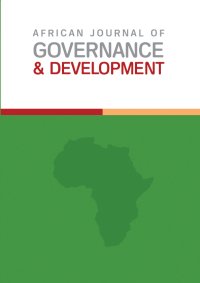Nigeria’s Fourth Republic: Electoral administration and the challenge of democratic consolidation
Main Article Content
Abstract
The place of election as a signpost of democracy is not in contention since democracy
means first and foremost the process through which citizens freely choose their representatives. However, democratic practice in many developing countries are still regarded as electoral democracy because attentions are shifted away from the substance of democracy to focusing on conducting elections only as means of power transition and/or legitimation. The major challenge of democratic consolidation in developing democracies can therefore be linked to election administration which is a compass for any democratic process. Though, Nigeria has been able to maintain a viable set of periodic and regular elections since the return of party politics in 1999, the political values of that attainment is questionable. Against this backdrop, this paper examines the different contours Nigeria’s electoral democracy has experienced since the enthronement of the present fourth republic and findings situate them within the contradictions of electoral administration. While studies on the challenges of electoral administration in Nigeria have focused on regime analysis, this study attempts a holistic view of Nigeria’s contemporary democratic practice since 1999. The methodology of research is both descriptive and analytical.
Article Details

This work is licensed under a Creative Commons Attribution-NonCommercial-NoDerivatives 4.0 International License.
